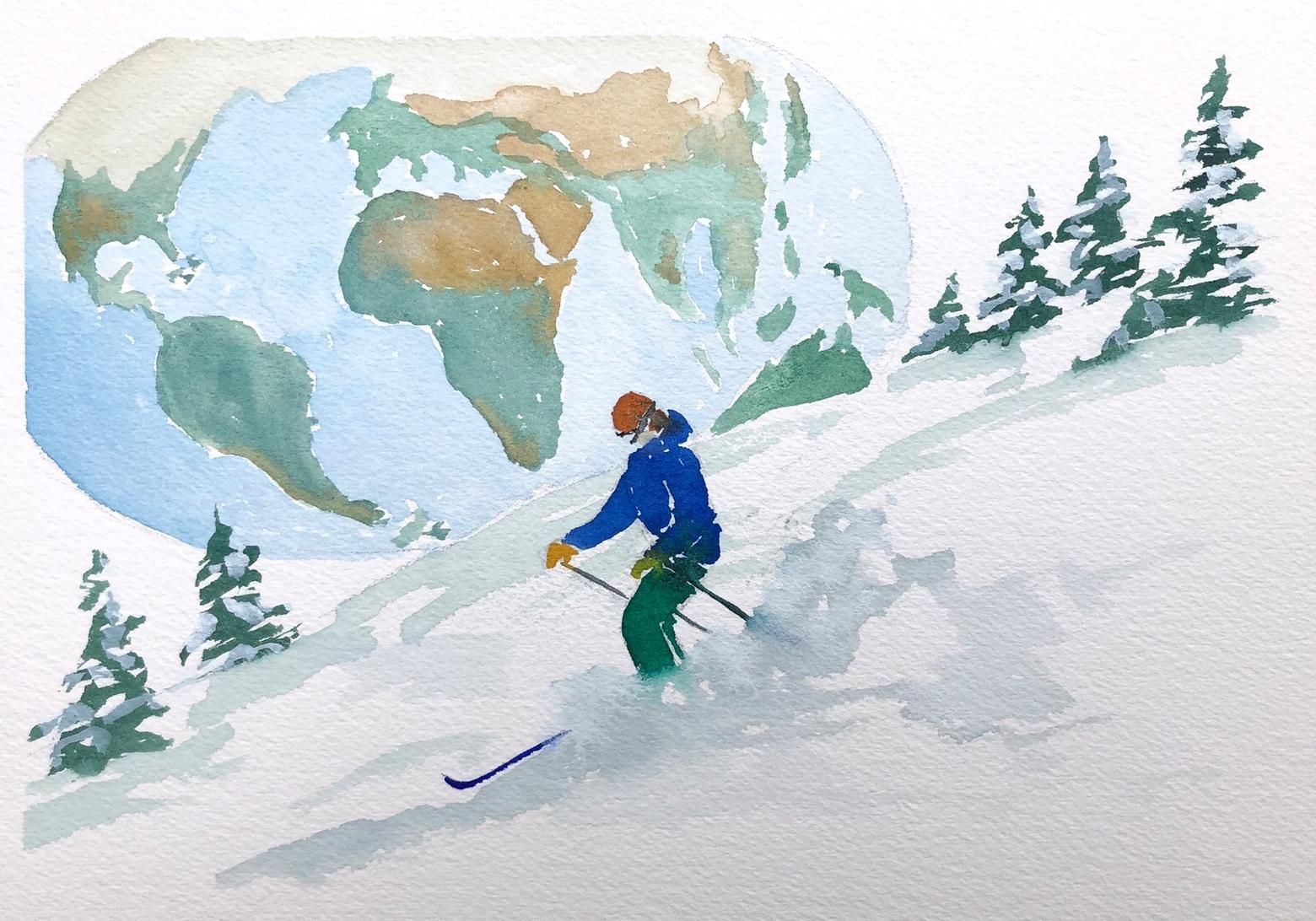Back to StoriesThe World We Ski Across Is Flat
Smile when you put on your fleece made in Sri Lanka but be grateful. You are wearing the fruits of their labor. To join you for just a single day on the slopes, it would take them a month’s wages to afford a lift ticket. By what we do in work and recreation, we are creating each other's world.
December 1, 2017
The World We Ski Across Is FlatOur Moments On The Slopes Are Linked To The Works Of Others On The Other Side Of The World
Ski season is upon us again for those living in the Rocky
Mountains. In idyllic mountain towns, it doesn’t take much reflection to
realize that we live in a bubble, yet we are dependent on the global economy that in many ways benefits us disproportionately.
Just take a look at your ski boots – the shell is made in
Italy, the liner and insole in South Korea or Vietnam. Your skis themselves may
be manufactured in Austria. Your shell pants are made in China. My daughter
works for a Greater Yellowstone-based outdoor clothing company and they
communicate daily with their factories in Asia.
As Thomas Friedman wrote in his book of the same name, the
world is flat in terms of global trade, and so is the gear, equipment and technology
that drives the U.S. downhill ski industry.
Think about it. Where was your cell phone or computer screen on which you
are reading these words made? When you
see a red hat whose slogan reads “Make America Great Again”, what exactly does
that look like when a huge percentage of the things we use are at least
partially made in another country?
I have assisted with the writing and printing of several
fine art photography books. Working on the first book, 10 years ago, we were
sending actual prints back and forth with our printer in China. We had to sign
off on the color for each page of the book. Finally, the blue line came, the
final version of the book. We had to read every line and check for errors. Any
changes that were to be made later would be costly.
Three of us flew to China to be on press check for the actual
printing of the book. The pages came off the printer 24 hours a day for 4 days.
I caught catnaps, sleeping on the sofa in the conference room, in between
pages. The printer who adjusted the color did not speak any English and I do
not speak Mandarin. We did a lot of hand signals to get everything perfect.
What an experience to see the book materialize in the printing
facility. For the second book we got
PDF’s via email, no need to be on press check. The edits could be made easily.
The book arrived and the color was perfect.
The internet has made the world so small and interconnected
but do we feel closer in these times or farther away? We date online, we Skype
and text across the globe. Time seems to have less meaning when we are texting
with someone 10,000 miles away but the time that speeds by, which keeps us
alive and aware in moments, is the most important commodity we have. Around the world, I interface with others via
technology who are in the dark because it is night and I am in the dark because
it is early morning, but we are still in the same day.
Many in mountain towns consider themselves cosmopolitan. We
travel and have friends all over the world. On Facebook we know what everyone
is doing, that is either bad or good. But the world, we are told, has shrunk.
Goods and services are not the only products that are global. Carbon dioxide pumped into the atmosphere to make the stuff we wear and use might originate out of sight and mind yet it is affecting the snowpack now and for as long as we can see into the future.
Next time you put on your ski gear think about all the
people that were involved in creating your clothes and equipment. Try to
imagine and empathize with their lives. Try to devote just a second to reflecting on how we consume products to support our lives is affecting the very medium that we are gliding over beneath our feet. Think about companies that are doing right by the environment—find them out—and support them.
Next time you put on your ski gear think about all the people that were involved in creating your clothes and equipment. Try to imagine and empathize with their lives. Try to devote just a second to reflecting on how we consume products to support our lives is affecting the very medium that we are gliding over beneath our feet. Think about companies that are doing right by the environment—find them out—and support them.
The world and all of
us living in it depends on each other. We must all work toward saving our
planet, the wild places and wildlife, we must remember that we are all in it
together even if we live half a world apart, speak different languages, live in
the city or the country. We need them and they need us to be smarter and more conscientious.
Smile when you put on your fleece made in Sri Lanka but be grateful. You are wearing the fruits of their labor. To join you for just a single day on the slopes, it would take them a month’s wages to afford a lift ticket. By what we do in work and recreation, we are creating each other's world.




